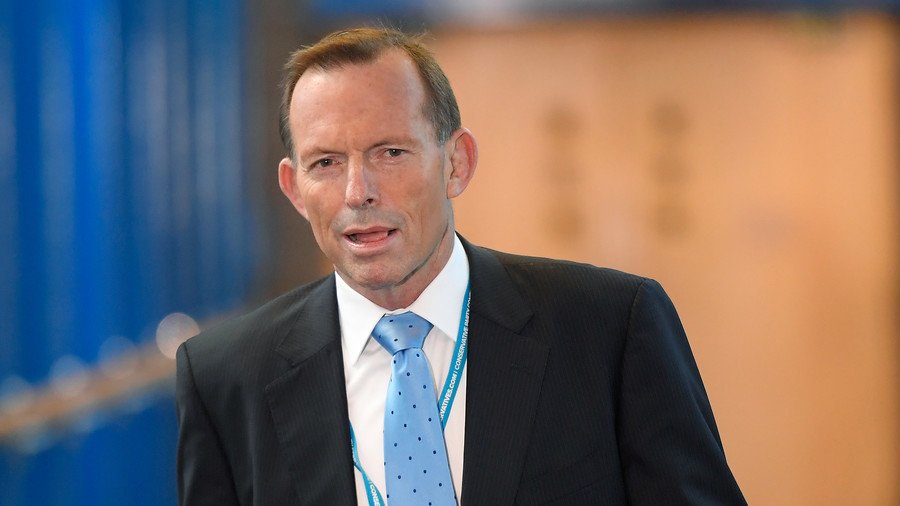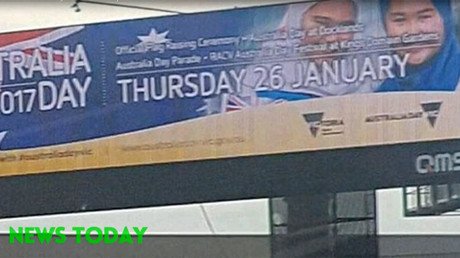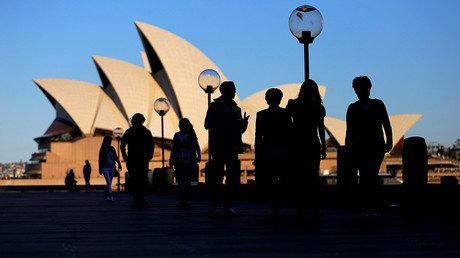British ‘Invasion Day’ benefitted aboriginals despite centuries of abuse - former Aussie PM

Tony Abbott has sparked outrage by claiming the British occupation of Australia was a good thing for the country’s indigenous people, despite decades of abuse and mistreatment.
“What happened on the 26th of January, 1788, was on balance, for everyone, Aboriginal people included, a good thing,” the former Australian prime minister told 2GB radio. “It’s hard to imagine a better Australia in the absence of the Western civilization that began here from that date. It brought Western civilization to this country. It brought Australia into the modern world."
Australia Day celebrates the British First Fleet’s arrival in Australia on January 26. It is commonly referred to as, “Invasion Day,” among Aboriginal people and those who recognize the negative effects of the British arrival on the indigenous population.
This Friday I will gladly join millions of my fellow Australians to declare my faith in what, to us, is surely the best country on earth.https://t.co/9OPkLsdi9G
— Tony Abbott (@TonyAbbottMHR) January 21, 2018
“The rule of law, equality of the sexes, scientific curiosity, technological progress, responsible government — plus the constant self-criticism and lust for improvement that makes us so self-conscious of our collective failings towards Aboriginal people — all date from then; and may not have been present to anything like the same extent had the settlers fanning out from Sydney Cove been other than British,” Abbott said.
Despite Abbott’s reference to Australia’s recognition of its failures, the country has yet to apologize or offer repatriations or a treaty to the indigenous population.
Aboriginal children were taken from their families between the 1890s and 1970s, and are known as the ‘Stolen Generations.’ They were placed in homes for children, or in the care of missions and foster parents while some were used as cheap labor. The aim was to assimilate the indigenous population within a few generations.
‘Routine force & isolation’: Australian commission begins into treatment of juvenile detainees https://t.co/HExrXZQYiv
— RT (@RT_com) October 11, 2016
“It’s very rarely a one-way street, so to speak, but if you look at the Australian achievement over the last couple of centuries, it is overwhelmingly a positive story, and increasingly it’s a positive story for indigenous Australians as well,” Abbott said.
Even today, Aboriginal people face a lower life expectancy and suffer from diseases like trachoma, which have largely been eradicated in developed countries. They are placed in care at higher levels than during the ‘stolen generations’ and disproportionately make up prison populations, with 24 percent of inmates of Aboriginal descent despite making up only 2.8 percent of the population. UN Special Rapporteur Victoria Tauli-Corpuz described the number of Aboriginal children in prison as, “the most disturbing thing,” she saw during her time investigating indigenous disadvantage last April.
The former prime minister also published his views on his website, where he said, “there are 364 other days [of the year] to wear a black armband.”
‘Red heart’ of Australia: The dirty secret of Utopia (Op-Edge) https://t.co/9mLyVlnFHMpic.twitter.com/HYLtAsXtSk
— RT (@RT_com) April 10, 2016
“Sure, not everything’s perfect in contemporary Australia; and it’s possible that Aboriginal life could have continued for some time without modernity bursting upon it, had governor Arthur Phillip not raised the Union flag and toasted the king on January 26, 1788,” Abbot said, “But it’s hard to imagine a better Australia in the absence of the Western civilisation that began here from that date.”
Abbott has made a number of controversial comments about Aboriginal people, despite describing himself as the “Prime Minister for Indigenous Affairs.” He drew condemnation in 2014 when he referred to the British invasion as “a form of foreign investment by the British government in the then unsettled or, um, scarcely settled, Great South Land."
This is appalling! How on earth did this horrible man lead our country??
— Rebecca Johnson (@becsmatebruce) January 21, 2018
"What happened on the 18th of September 2013, When I became Prime Minister For Indigenous Affairs was on balance, for everyone, Aboriginal people included, a good thing"Said No-one except Tony Abbott#auspolpic.twitter.com/5G3LakYma4
— david j hodder (@deejayhodder) January 22, 2018
Maybe not so good for the ones who were killed or their families.
— B_Sharp (@Just_Westy) January 22, 2018
In 2015, he defended government plans to shut 150 Aboriginal regional communities, saying taxpayers shouldn’t have to fund the, “lifestyle choice,” of those Australians.
Abbott refused to apologize for the statements which were described as being, “unbelievably racist,” by Greens Senator Rachel Siewert. His own advisor on indigenous affairs, Warne Munine criticized the comments.
"It is not about a lifestyle, it is not like retiring and moving for a sea change,” Munine said. “It is about thousands of years' connection, their religious beliefs and the essence of who they are."
"Do you think it was good for our ancestors to feel as though they were dispossessed of their lands, there were killings, there were massacres," Co-Chair of National Congress of Australia's First Peoples, Rod Little, said in response to Abbott’s comments, SBS reports.
"To have the circumstances we have today in our education outcomes, our unemployment, our incarceration rates, our health rates, really what good has come from that first landing?"
Think your friends would be interested? Share this story!














